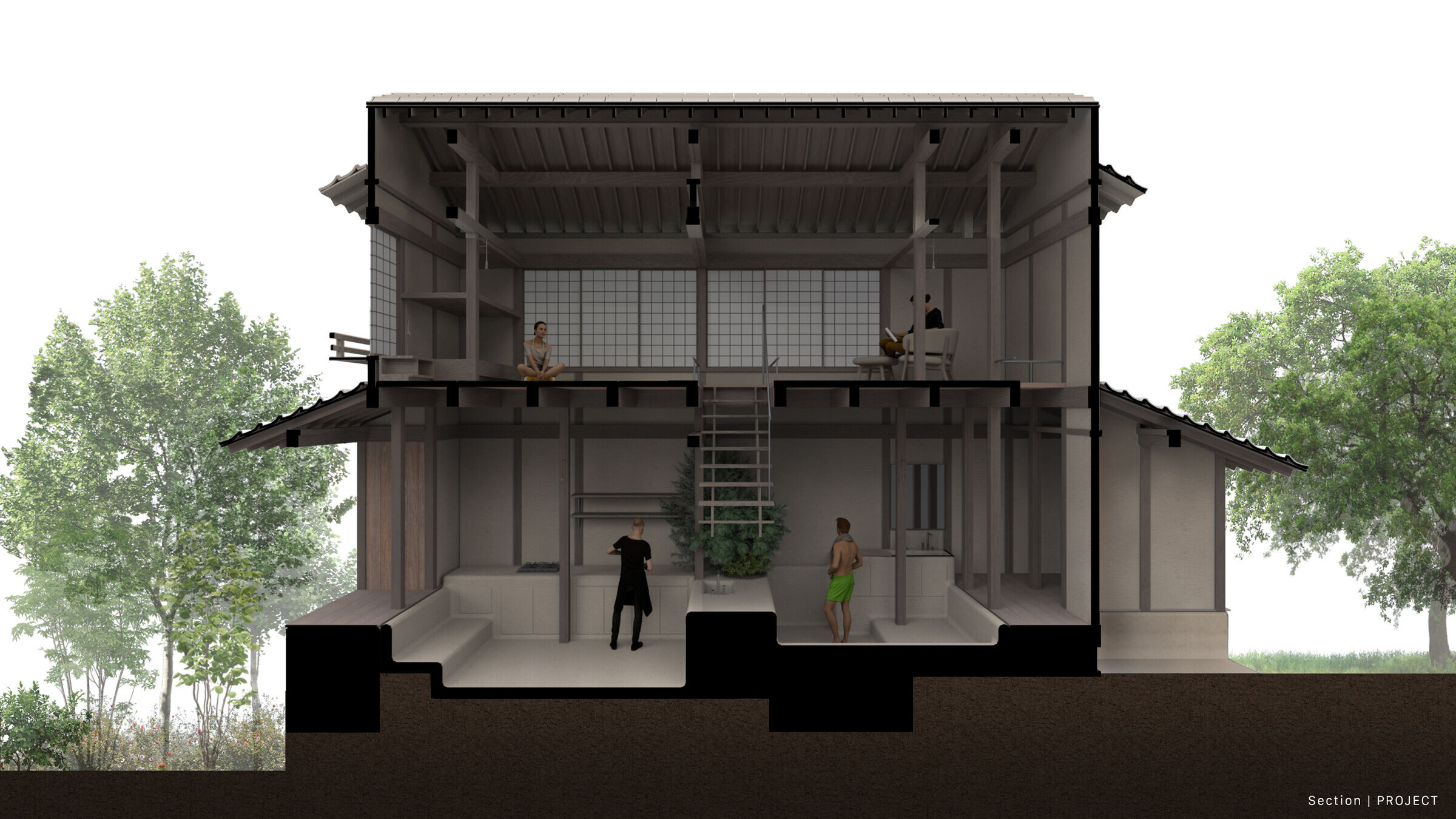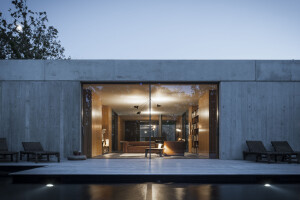This project involves the renovation of a 120-year-old traditional wooden house in the Misumi region of Shimane Japan into an accommodation facility.
The building, which looks out to sea and nestles up against a hill at the back of the house, was built as a detached house for the local landlord. It is built directly on a stone foundation fending earthquakes off by shaking the structure itself.
The building is almost semi-outdoor, with only a wooden door as an external wall to blow the wind.
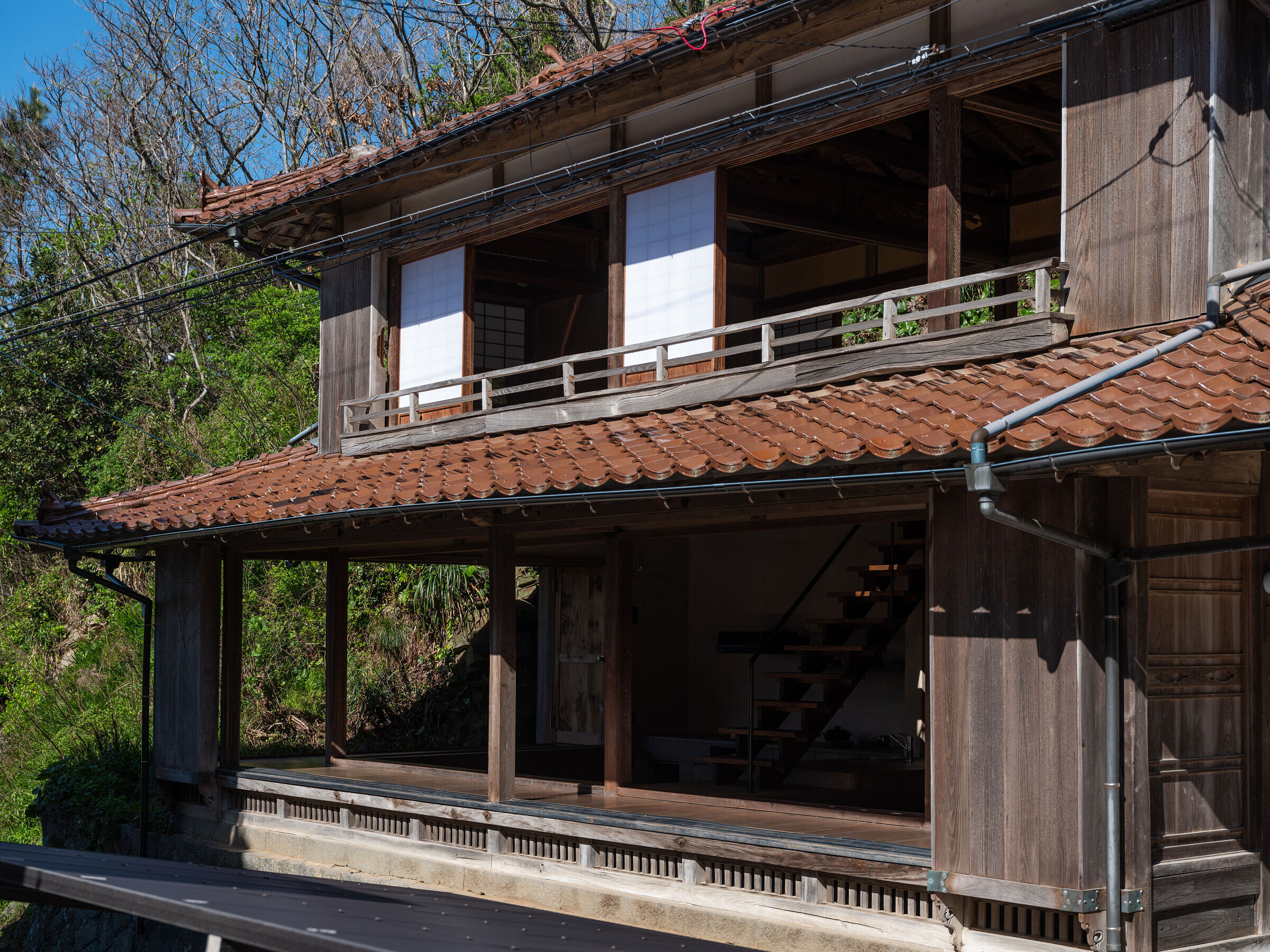
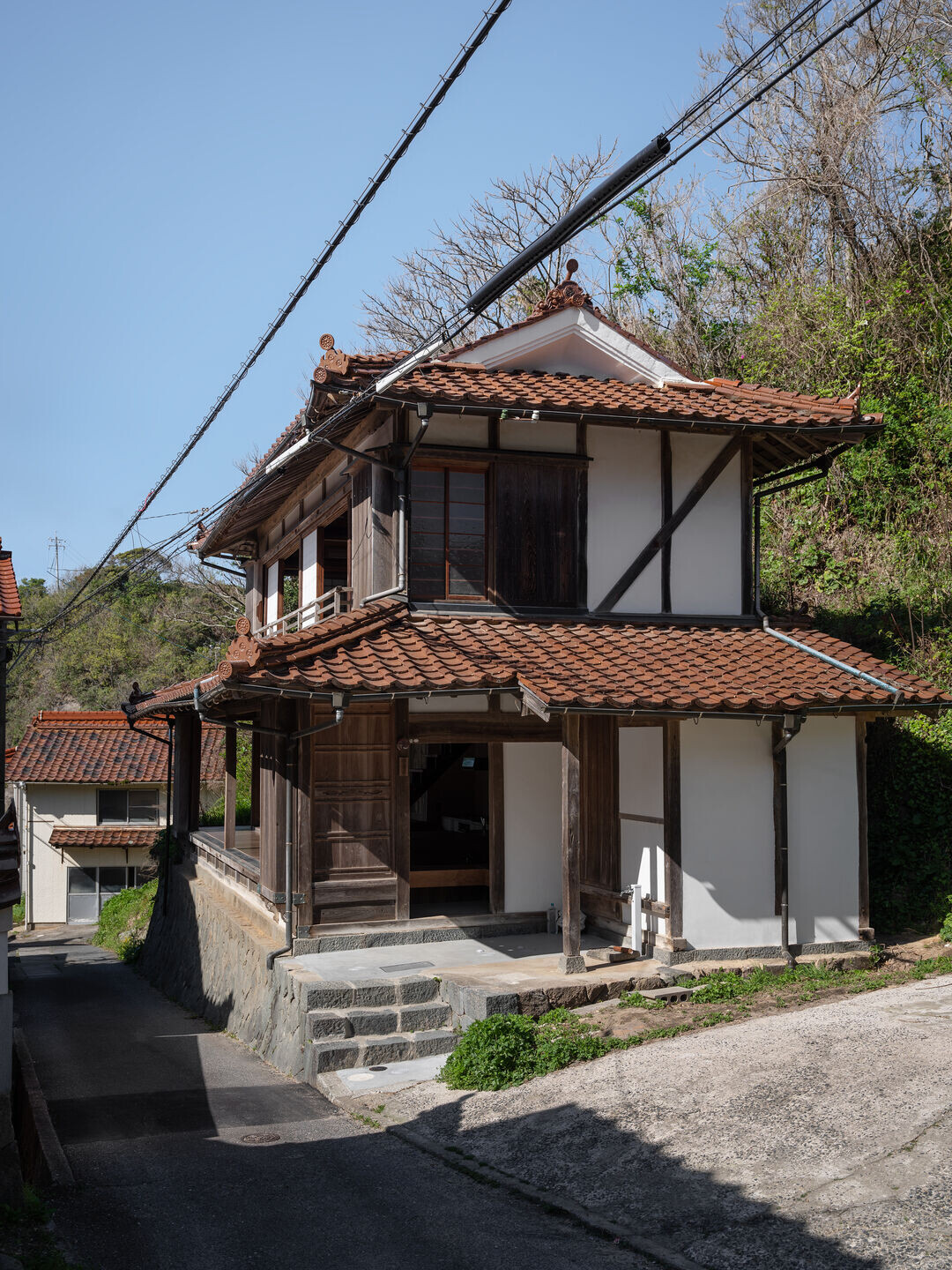

The client wanted visitors to the fishing village, which is characterised by its stone-tile roofs, to experience the local climate and culture, including nature, as it is.
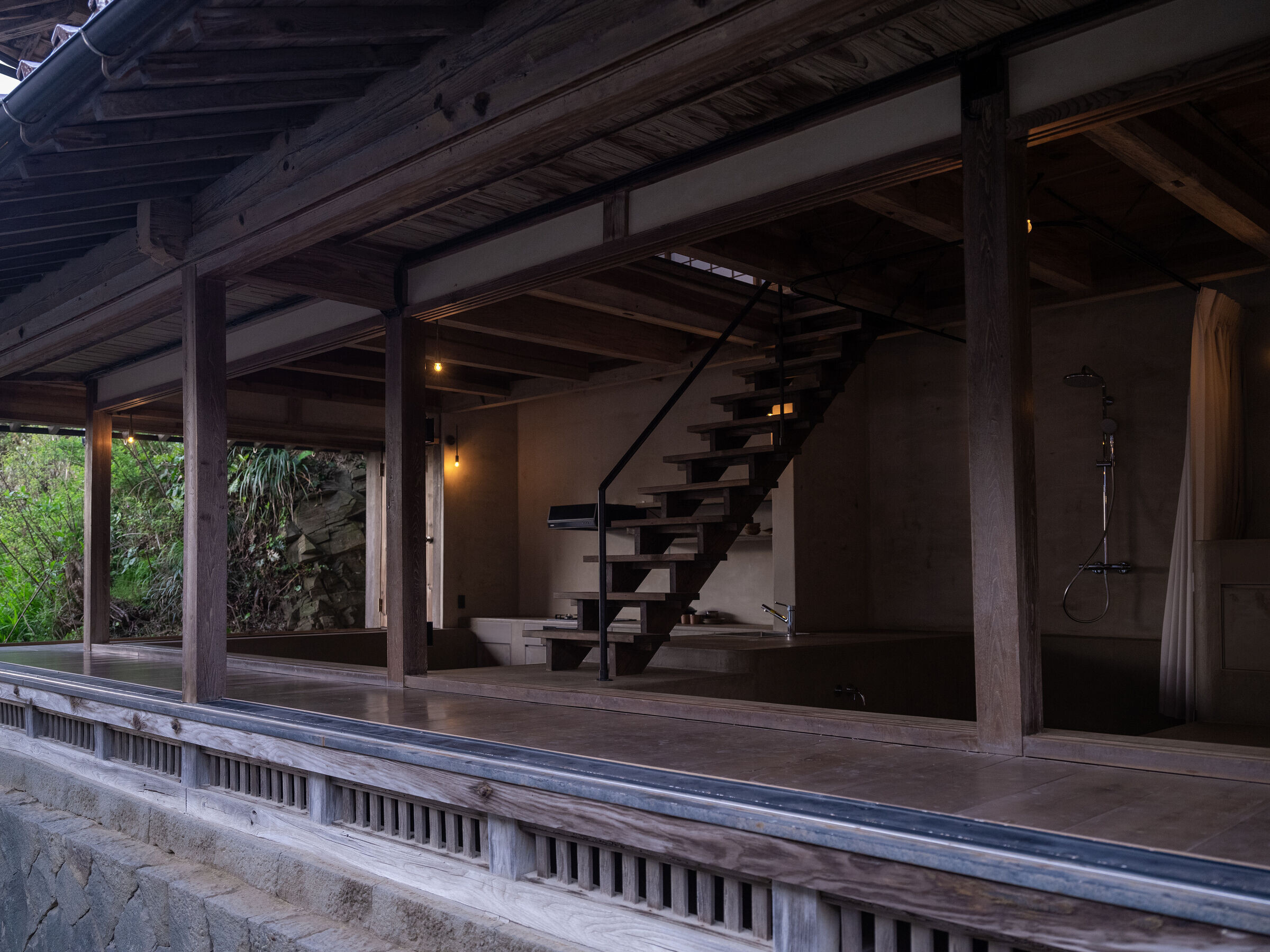
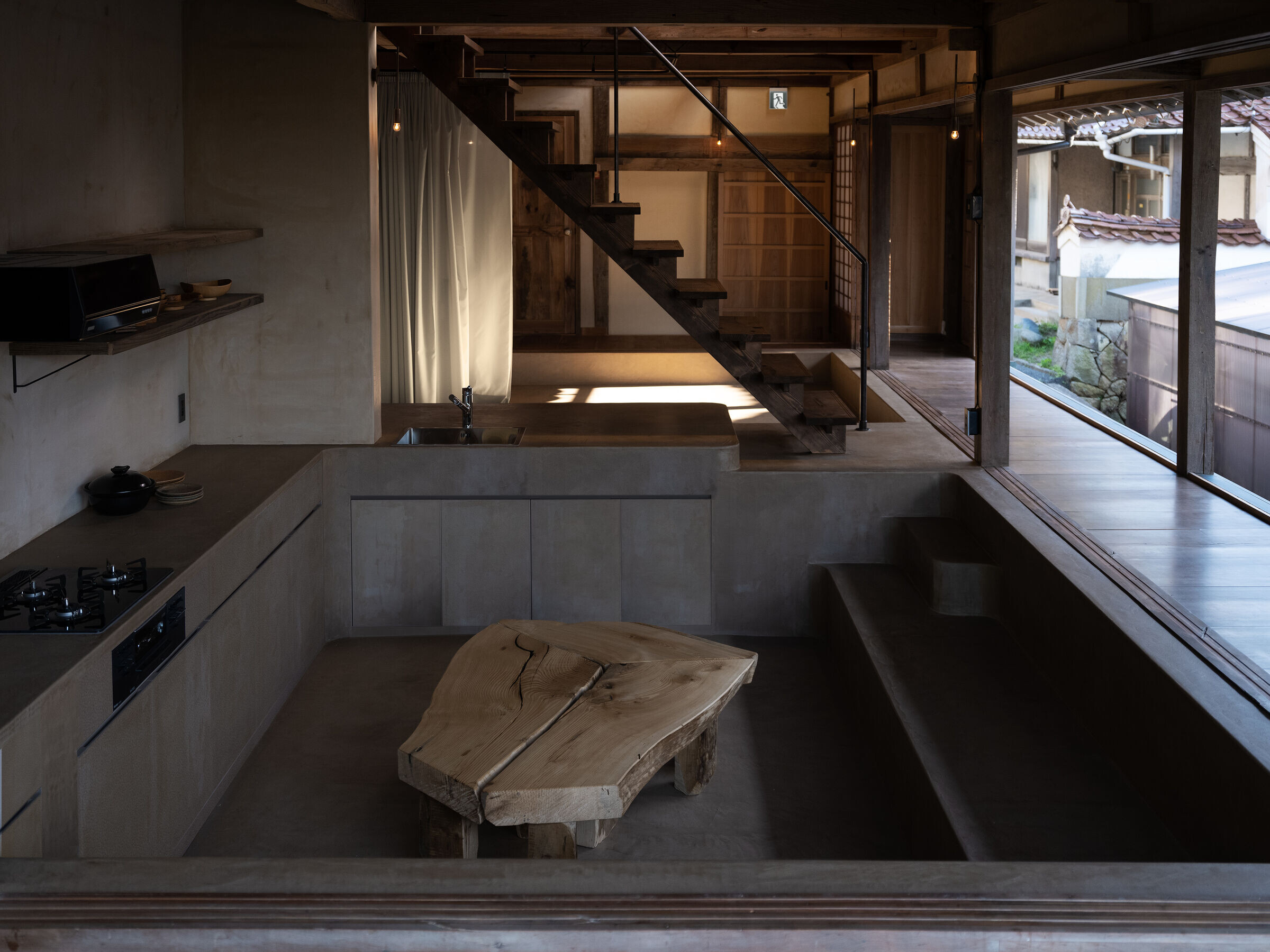

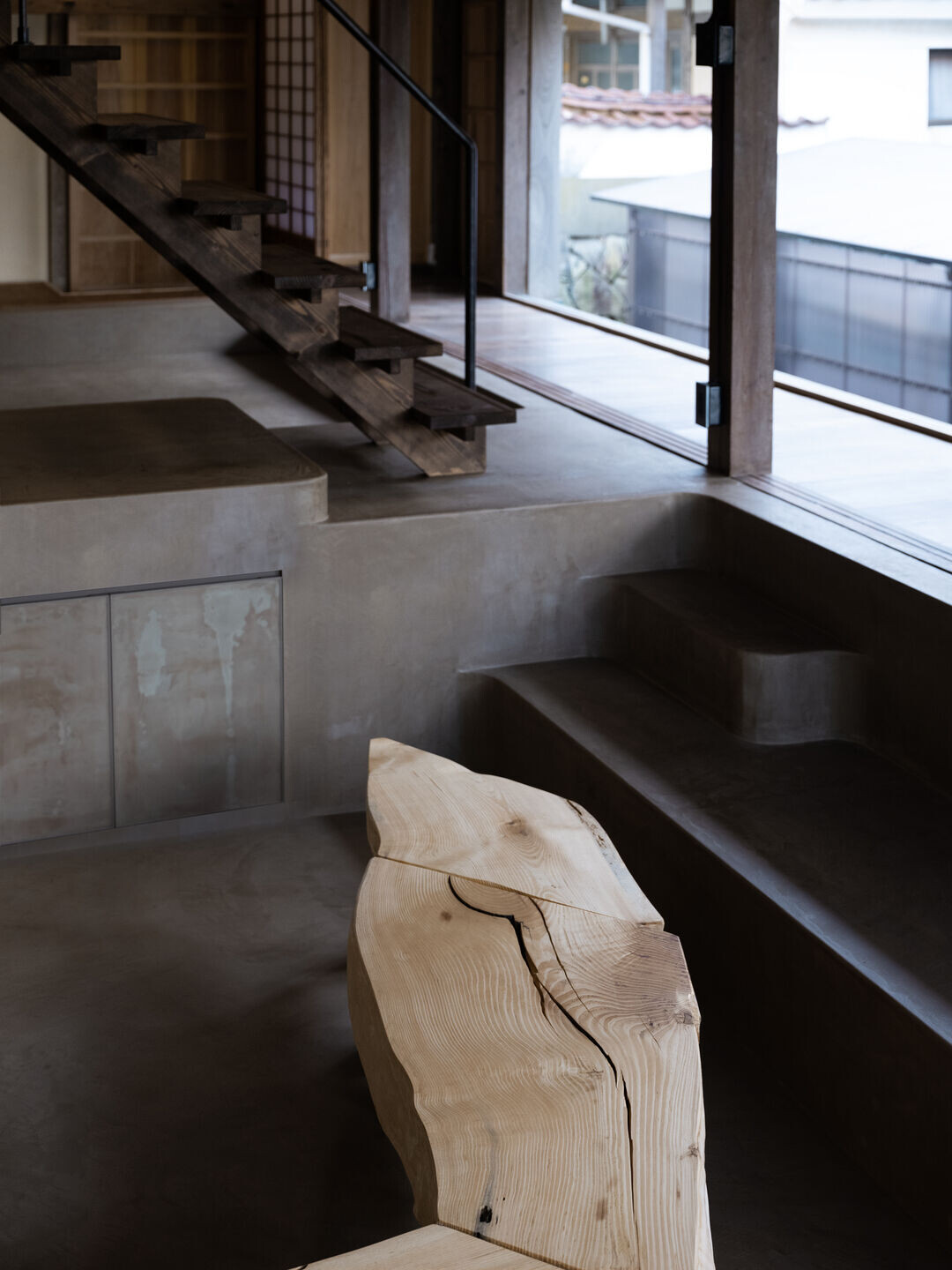
By reinterpreting the idea of the traditional Japanese earthen floor and placing the functions of daily life, such as cooking and bathing, in a space on the ground floor that was dug into the ground and made into a single unit, a new protected space was created that is continuous with the external space, but enclosed at shoulder height.

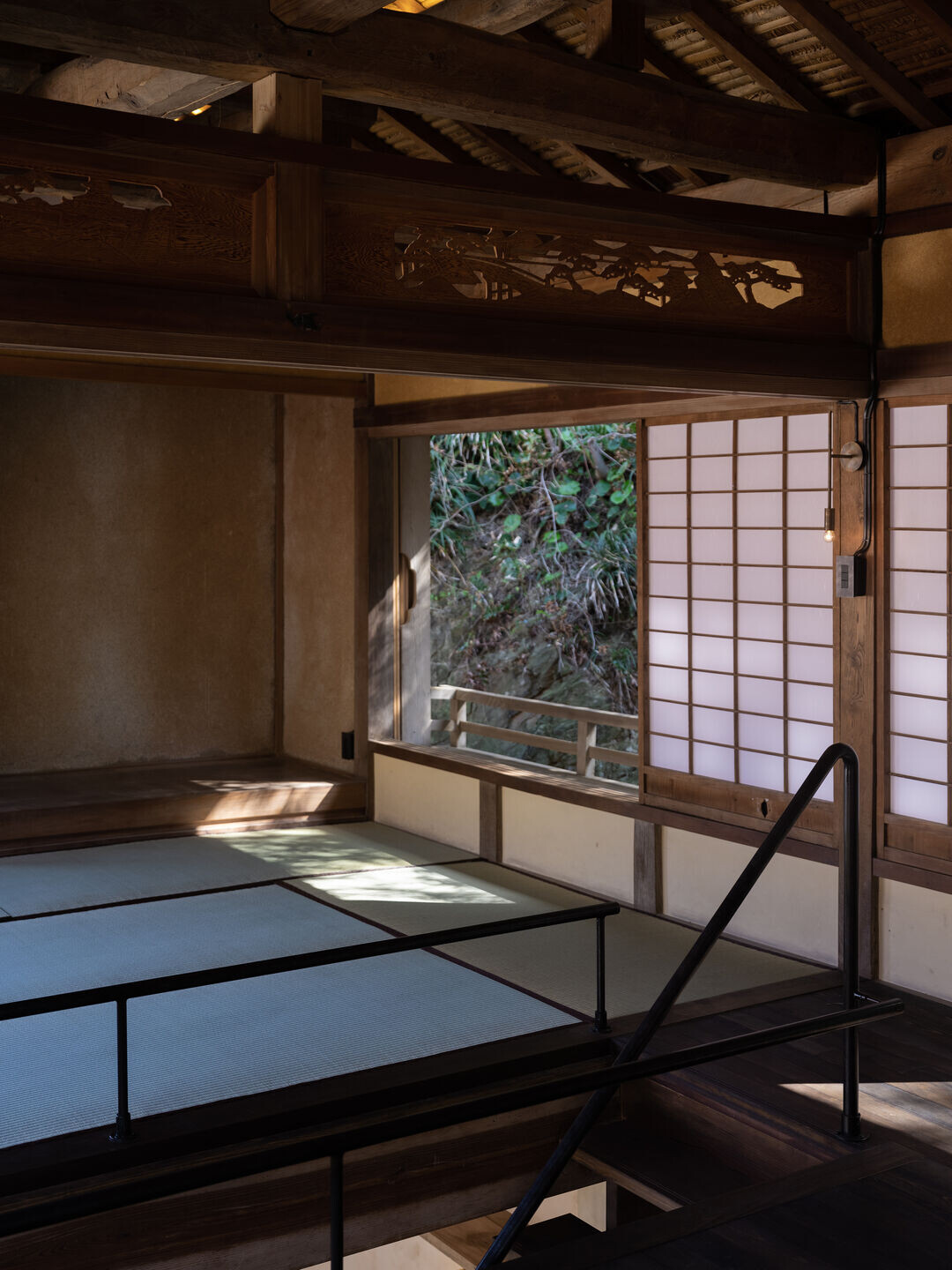
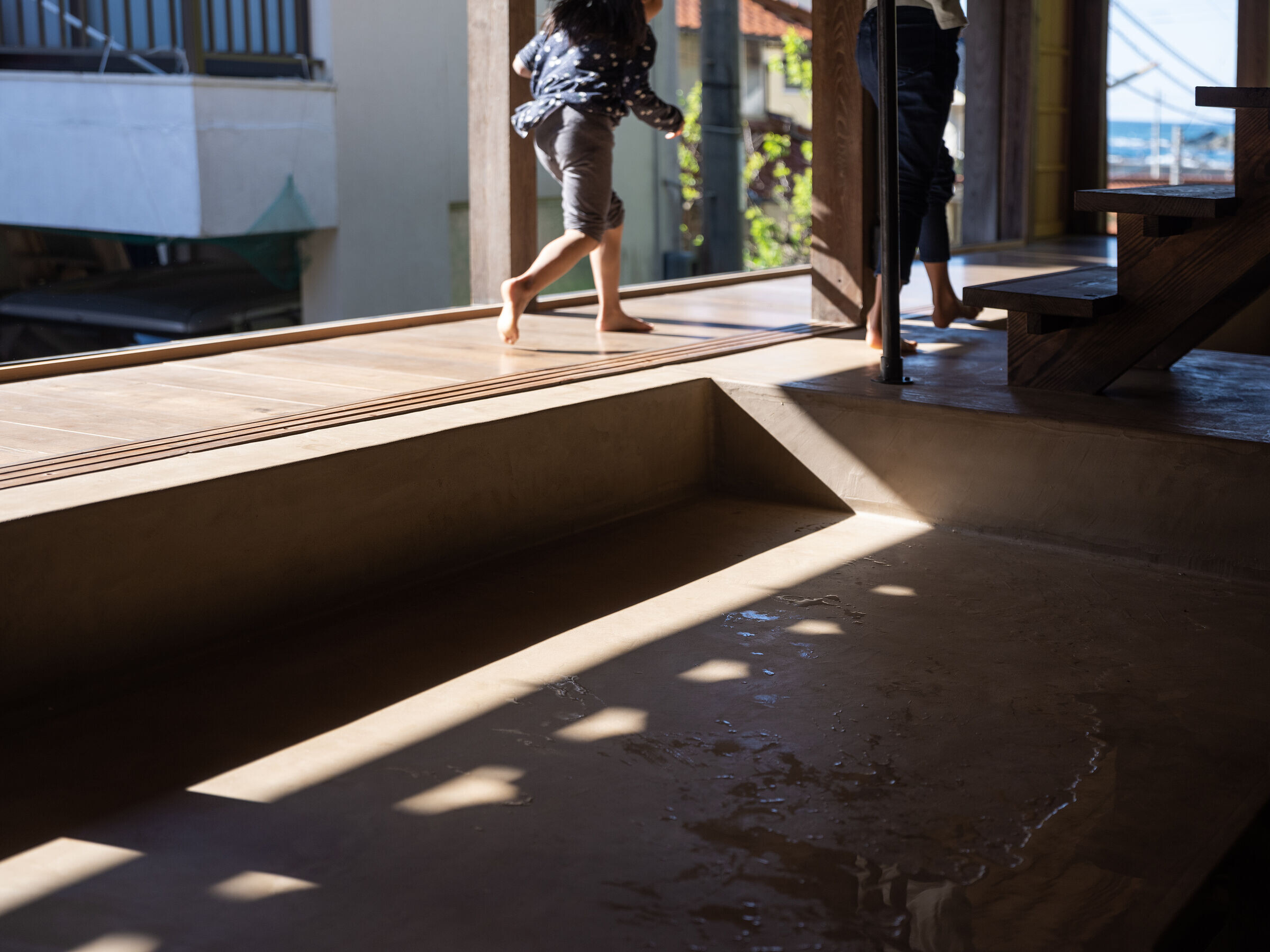
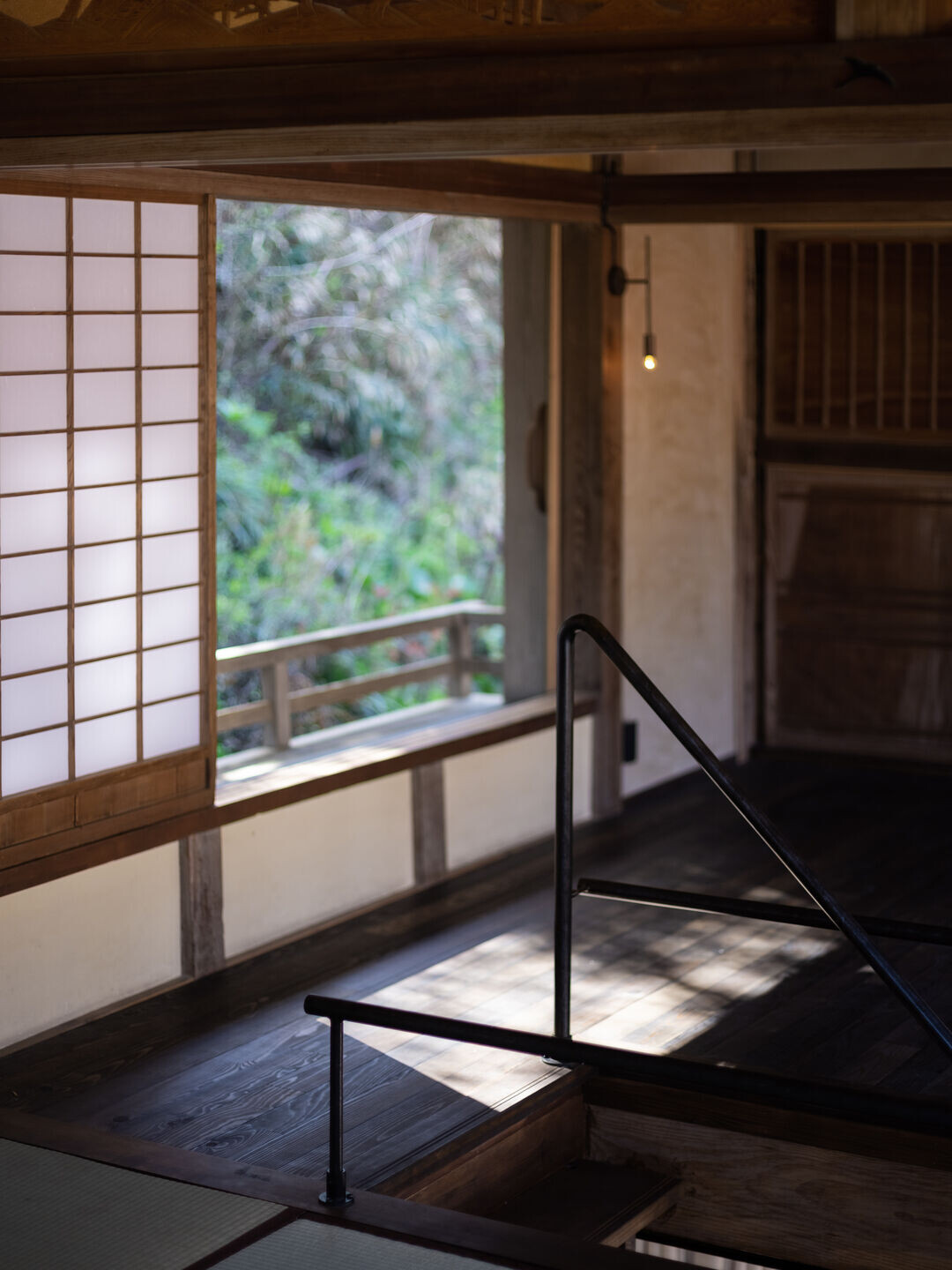
Through this open yet enclosed earthen floor space, it is intended to function as a place where people can directly feel the unique climate of the region and learn about the culture of gathering and interaction. When there are no guests staying overnight, it is hoped that it will become a relaxed place where local people can naturally gather.

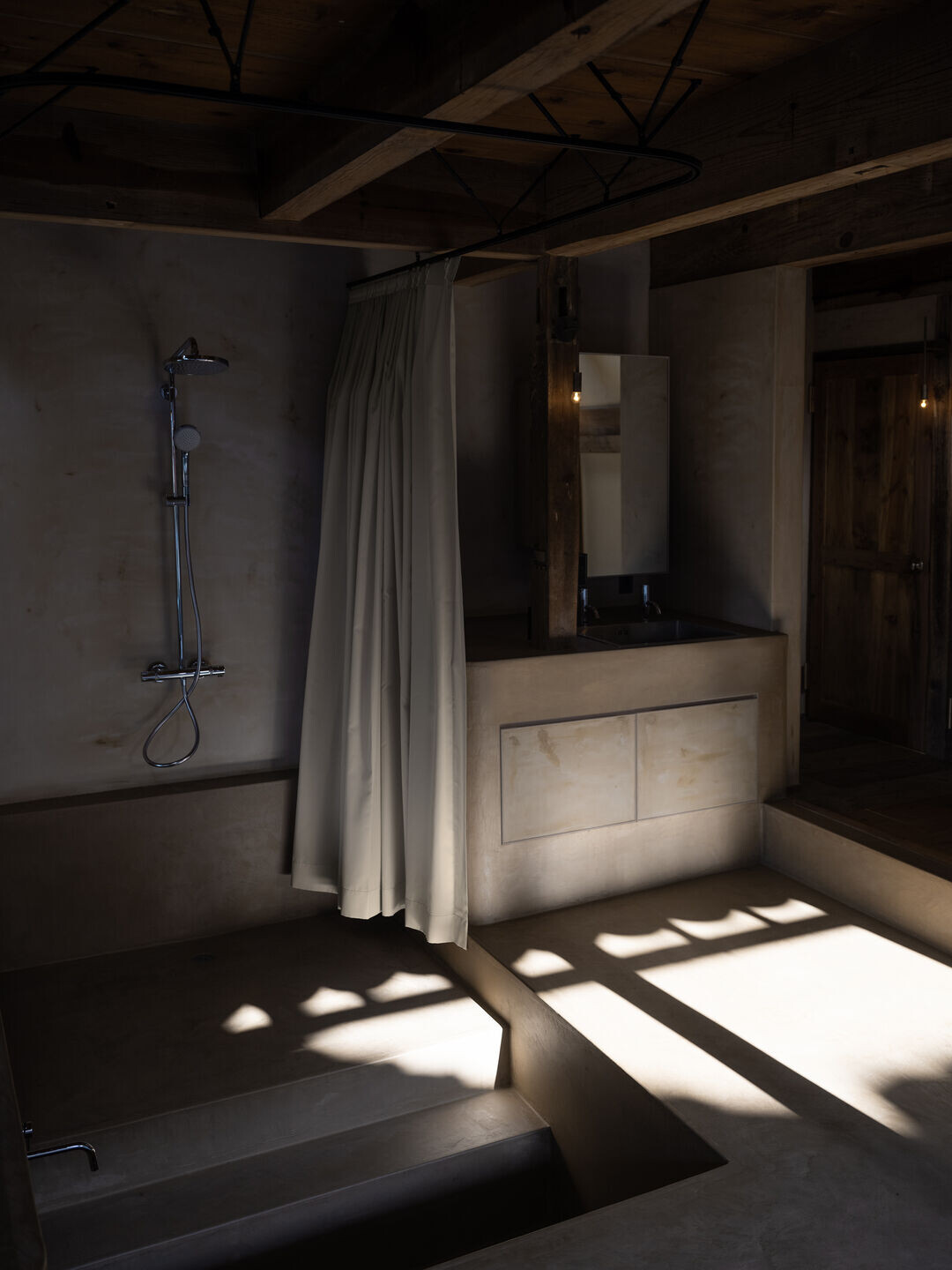
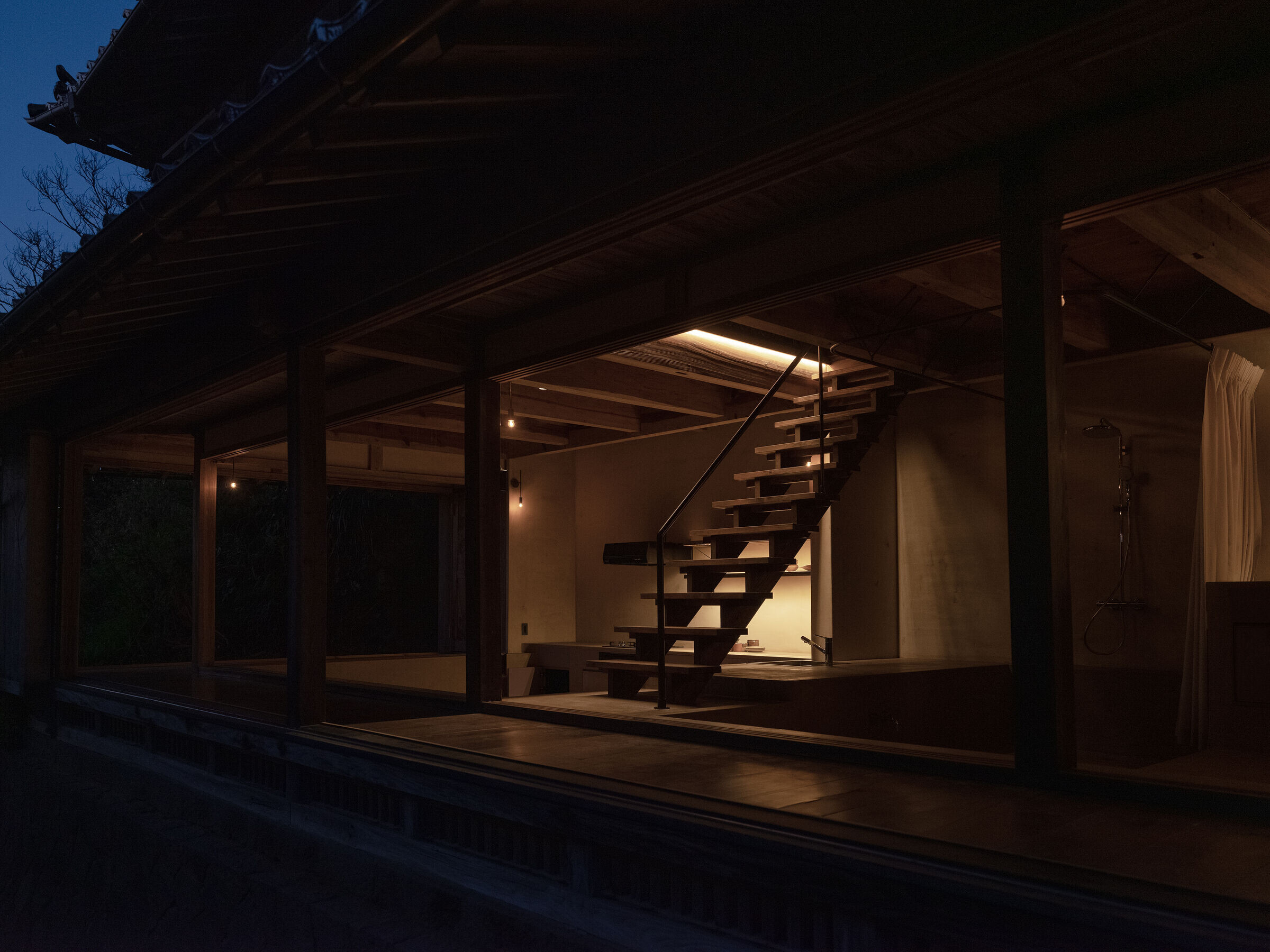
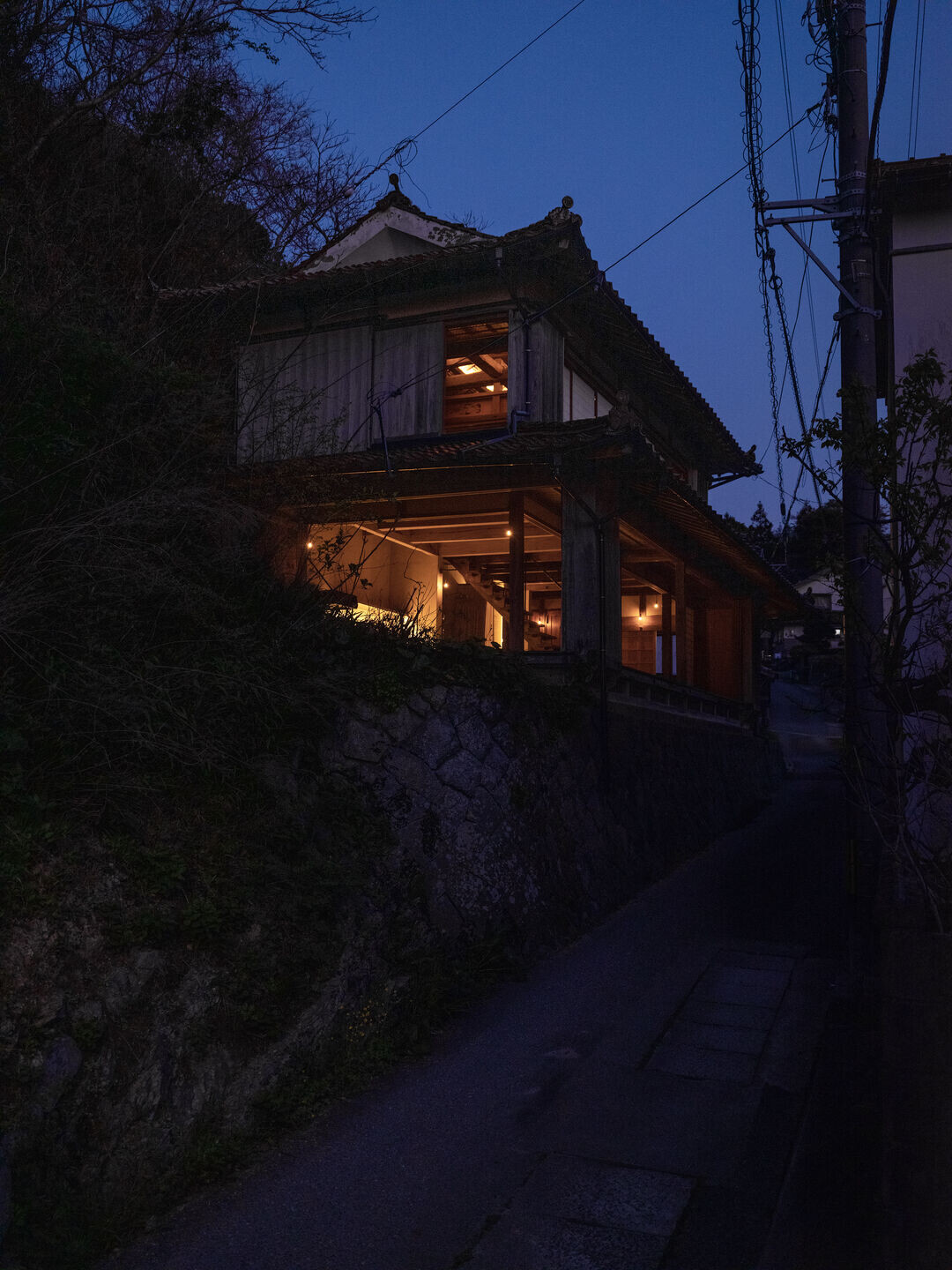
The aim is to create a new typology of cultural exchange, where visitors temporarily live here and this becomes a mechanism for interaction with the local people, creating cultural exchange not only through space but also through people.
